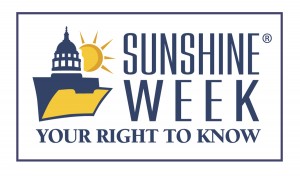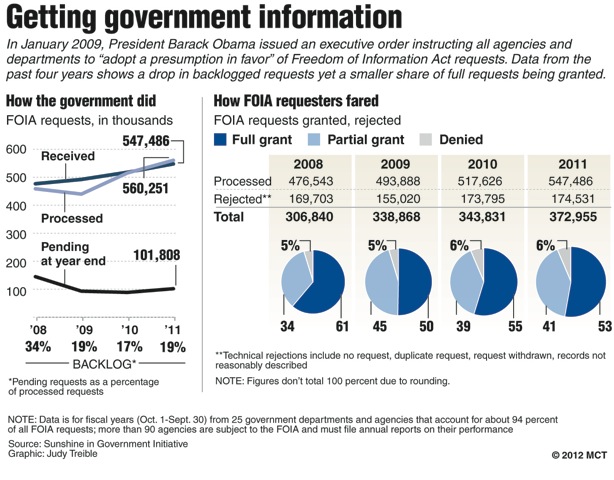Shine The Light On Local Government
by Ricky Campbell
 There is no more opportune time than now to educate newsrooms and the public on the Freedom of Information Act and public records in Connecticut.
There is no more opportune time than now to educate newsrooms and the public on the Freedom of Information Act and public records in Connecticut.
The past year has been a roller coaster of public record proposed legislation and department mergers, from “a disaster for FOI in Connecticut” to “attempts to strike a balance” between the public’s right to know. As a journalist, watching lawmakers attempt what they believe are correct measures, it’s important to watch, analyze – and scrutinize – their every move.
The impact and importance public records are to us, as journalists, is no mystery. However, our communities need continuous education on the significance of the FOI law, reminding them of its initial mission: government oversight.
Sunshine Week commences Monday, and I encourage every newsroom, blogger, veteran, student, or interested community member to educate their contacts with the importance of our right-to-know. While some projects might take time and preparation from weeks ago, there is still time to do your part.
Simple experiments, rigorous investigations, edgy editorials -– whatever. Sunshine Week is a great time to remind news consumers of what is truly important, and any assault on a lack of free information should be on the forefront.
As a beat reporter in a town with questionable transparency, it encourages my competitiveness to kick in, looking for even more opportunities to exercise public information. This week, residents of the northwest corner can expect a school district comparison and Litchfield community members can prepare for some otherwise-hidden emails on a growing political topic in town. Also, with every twist in the current Torrington Police debacle, I can encourage our readership that, well, “We’ve only just begun.”
So, as a journalist, what are you doing this week? Are you going to just shrug it off and go about everyday news life? Or will you take some more steps to educate your readership, going that extra mile to remind them why they buy newspapers or click on your links?
I suggest the latter. It’s your duty. In a state with a unique outlet and a country with laws like FOI at our fingertips, we better take advantage of it all.
Happy Sunshinin’!
Don’t be shy and share your stories with us. Here are some great starting points:
Sunshine Week Idea Bank
SPJ FOI activities
IRE’s Extra Extra
Connecticut FOI resources from NFOIC
Tips and Tales – New Haven Register’s Alexandra Sanders’ blog
Cool Justice – journalist Andy Thibault’s blog
The Scoop – Hartford Courant blog
Connecticut Sunshine Week projects — CTSPJ blog
Ricky Campbell is a CT SPJ board member and reporter for the Torrington Register Citizen. You can reach him by email at rcampbell@ctspj.org, on Facebook, or Twitter
